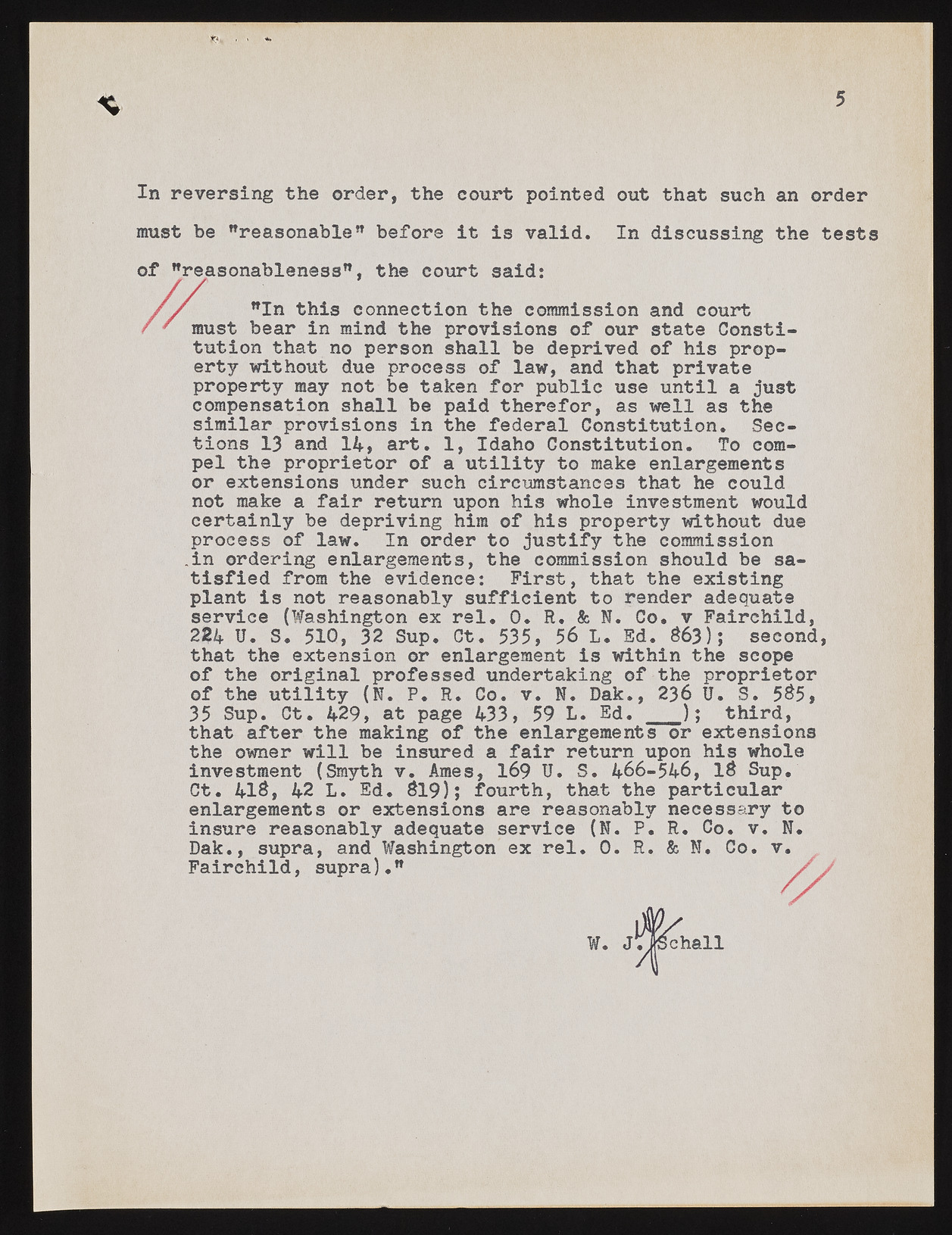Copyright & Fair-use Agreement
UNLV Special Collections provides copies of materials to facilitate private study, scholarship, or research. Material not in the public domain may be used according to fair use of copyrighted materials as defined by copyright law. Please cite us.
Please note that UNLV may not own the copyright to these materials and cannot provide permission to publish or distribute materials when UNLV is not the copyright holder. The user is solely responsible for determining the copyright status of materials and obtaining permission to use material from the copyright holder and for determining whether any permissions relating to any other rights are necessary for the intended use, and for obtaining all required permissions beyond that allowed by fair use.
Read more about our reproduction and use policy.
I agree.Information
Digital ID
Permalink
Details
Member of
More Info
Rights
Digital Provenance
Publisher
Transcription
5 In reversing the order, the court pointed out that such an order must be "reasonable” before it is valid. In discussing the tests of "reasonableness", the court said: "In this connection the commission and court must bear in mind the provisions of our state Constitution that no person shall be deprived of his property without due process of law, and that private property may not be taken for public use until a just compensation shall be paid therefor, as well as the similar provisions in the federal Constitution. Sections 13 and 14, art. 1, Idaho Constitution. To compel the proprietor of a utility to make enlargements or extensions under such circumstances that he could not make a fair return upon his whole investment would certainly be depriving him of his property without due process of law. In order to justify the commission in ordering enlargements, the commission should be satisfied from the evidence: First, that the existing plant is not reasonably sufficient to render adequate service (Washington ex rel. 0. R. & N. Co. v Fairchild, 2?4 U. S. 510, 32 Sup. Ct. 535, 56 L. Ed. £63); second, that the extension or enlargement is within the scope of the original professed undertaking of the proprietor of the utility (N. P. R. Co. v. N. Dak., 236 G. S. 5$5, 35 Sup. Ct. 429, at page 433, 59 L. Ed. ___ ); third, that after the making of the enlargements or extensions the owner will be insured a fair return upon his whole investment (Smyth v. Ames, 169 G. S. 466-546, IS Sup. Ct. 41&, 42 L. Ed. £19); fourth, that the particular enlargements or extensions are reasonably necessary to insure reasonably adequate service (N. P. R. Co. v. N. Dak., supra, and Washington ex rel. 0. R. & N. Co. v. Fairchild, supra)." / V / w. M s Jy.y SjSccbhall

